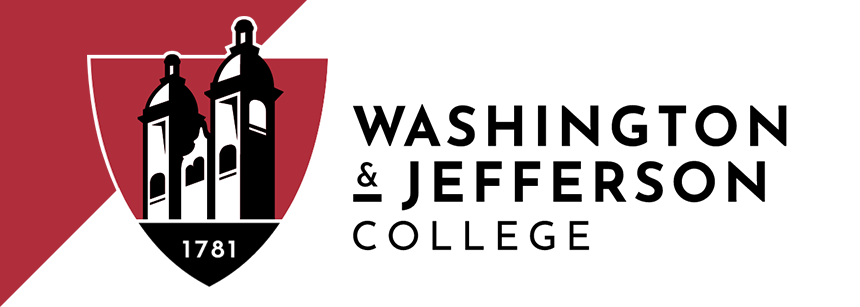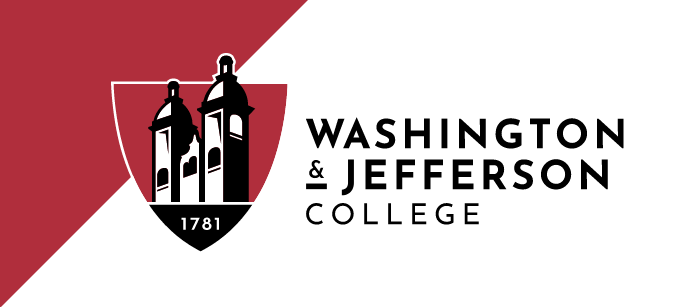WASHINGTON, PA (April 18, 2018)—While the world of STEM careers may have originally been a boys’ club, more and more women are pursuing their passions and making an impact in these fields, with many getting their education right here at Washington & Jefferson College (W&J)! In honor of the strong, intelligent women who are defying gender stereotypes in the workplace, we’re highlighting a few of our own in a new series on W&J Women in STEM.
Kelly M. Weixel is an associate professor in the Department of Biology. Prior to joining the faculty at W&J, Dr. Weixel was a postdoctoral researcher at the University of Pittsburgh School of Medicine and a member of the biology faculty at Chatham University. She has published a number of scientific papers in journals including the Journal of Biological Chemistry and the Journal of Experimental Medicine, and she has presented her work at national and international meetings. Her research interests are in the physiological regulation of sodium transport, which serves to regulate water volume and blood pressure in mammals.
We asked Dr. Weixel about her work in biology and her path to W&J. Check out what she had to say!
How did you become interested/involved in your field of study?
When I was in 7th or 8th grade, I read about a discovery for which doctors Michael Brown and Joseph Goldstein won a Nobel Prize. I found their story so exciting; they spoke about it with such curiosity and clarity. I admired how simply they explained the biology of cholesterol metabolism! It still seemed like a dense topic to me, but when I was in college I came across their work in so many chapters of different course text books. It demonstrated to me how studying one process can have such an impact on our understanding of fundamental features of physiology.
As an undergraduate I spent time looking for ways to combine my interests in biology, math, and particular aspects of physics. I enjoyed labs more than lecture, and seemed to have a knack for figuring things out at the “bench.” I was encouraged by my advisor to pursue a summer research internship so I could really get a feel for research and experience the process of discovery before committing to a career in research.
I joined a lab that studied how ovarian cancer cells became resistant to particular types of chemotherapy, in particular, how these cancer cells develop the ability to inactivate the drugs or remove them from inside the cell. This research led to my introduction to other processes that serve to regulate the chemical environment of the body, which I still study today. I study proteins that regulate salt and water content in the bloodstream, a fundamental process of governing blood pressure. I find that the mechanisms I study are fundamental to all physiological systems, which brings me full circle to what made me curious about science in 7th grade!
Who are some of your role models or inspirations in the field?
Clearly, Brown and Goldstein were inspirations for me, but I also find great inspiration in Otto Leowi and Rita Levi-Montalcini, tremendous researchers in physiology and in cell biology who were persecuted and arrested because they were Jewish. Loewi had to relinquish his research and discoveries to the Nazis and flee with his family in 1938, only two years after he won the Nobel Prize for his discovery of the neurotransmitter acetylcholine. Levi-Montalcini was barred from her profession during WWII but set up a laboratory in her bedroom to continue working. It was in this little laboratory she began a project for which she would be awarded a Nobel Prize in 1986 for the studies of neural growth factor. I admire their persistence, curiosity, and bravery, as well as the communities that these researchers built to help each other in extraordinary times.
I also look to my advisors and mentors as my own role models in my research community. My research advisor, Dr. Neil Bradbury, and a former collaborator, Dr. John P. Johnson, demonstrated such generosity in research in very ordinary times. Each opened their lab to a variety of people from around the world to help teach them, guide them, or provide the space for them to grow professionally. Neil would often remark to me that we do not do science alone, it is a shared apprenticeship and that it is important to pass along what we learn and how we learn it. I think of Neil every time I teach a new technique or involve students in my research; his patience and enthusiasm for my development in his lab still resonates with me.
What challenges do women face in your field? What challenges have you faced and how did you overcome them?
I had often been the only woman in my “lab group” before my postdoctoral training. Speaking with many of my fellow women in science, our common concern was not being taken seriously when we were the only females. Our work was sometimes omitted from discussion in lab meetings, or our contributions interrupted, our suggestions ignored. We were often left out of the social gatherings where it was clear our male colleagues were networking and being invited to participate in interesting projects.
My advisor was sensitive to this, however. He made sure my name was on every list for meeting with visiting speakers, he actively worked with me to advance my training as a mentor is supposed to do. He was also challenging and demanding and made sure I didn’t allow my work to be ignored in lab meetings. He taught me how to speak up, involved me in discussions, and valued my input. I also started inviting myself to some of the social events after my advisor suggested it. I found a really good niche with these researchers, many of whom remain my collaborators.
Because I was usually the only female I in my graduate lab, I actively sought a postdoctoral training environment that was decidedly different. I was very lucky to have had a female postdoctoral advisor who valued bringing women into her lab and was very supportive of finding a work-life balance. My advisor, Dr. Ora Weisz, had an open door policy for discussing issues that were, quite frankly, predictable biological outcomes for her staff! We discussed strategies for me to take maternity leave when the university did not have a leave policy for postdoctoral researchers. This is still a concern for postdocs in major research institutions.
Similarly, women in science, like in other industries, are typically paid less than their male colleagues. This is also true at the postdoctoral level. I discovered that for two years during my postdoc I was paid 30 percent less than my male colleagues with similar experience. Part of this is because postdocs are paid by grant money and depending upon the funding source, compensation for research can be capped or not subject to the oversight one might predict. The National Institutes for Health has been working to improve financial support and equality for postdoctoral researchers.
What made you want to teach others about your field?
I love science. I want others to be fascinated by the world around them and find a way to ask questions about it. Teaching gives me the opportunity to inspire others to be careful observers. Even if they do not become scientists themselves, I want them to value scientific exploration.
What advice do you have for young women interested in STEM studies?
I speak to women interested in STEM all of the time; I tell them to pursue that which truly interests them. Don’t be afraid of trying out new things, and apply for opportunities that challenge you. Keep working at it. It is going to be hard work, and your path might be different than you anticipated—sometimes it may seem like a random walk—but trust yourself. That walk is an important path of discovery for you—learn from it. Mentors are important; their support and experience can help you through the ups and downs.
This article is part of a larger series on W&J Women in STEM. Get to know some of our other professors: Dr. Alice Lee, Dr. Jennifer Bayline, Dr. Deborah Polvani, Dr. Kelly Weixel, Dr. Jenny Kline, and Dr. Amanda Holland-Minkley.
About Washington & Jefferson College
Washington & Jefferson College, located in Washington, Pa., is a selective liberal arts college founded in 1781. Committed to providing each of its students with the highest-quality undergraduate education available, W&J offers a traditional arts and sciences curriculum emphasizing interdisciplinary study and independent study work. For more information about W&J, visit washjeff.dev, or call 888-W-AND-JAY.

